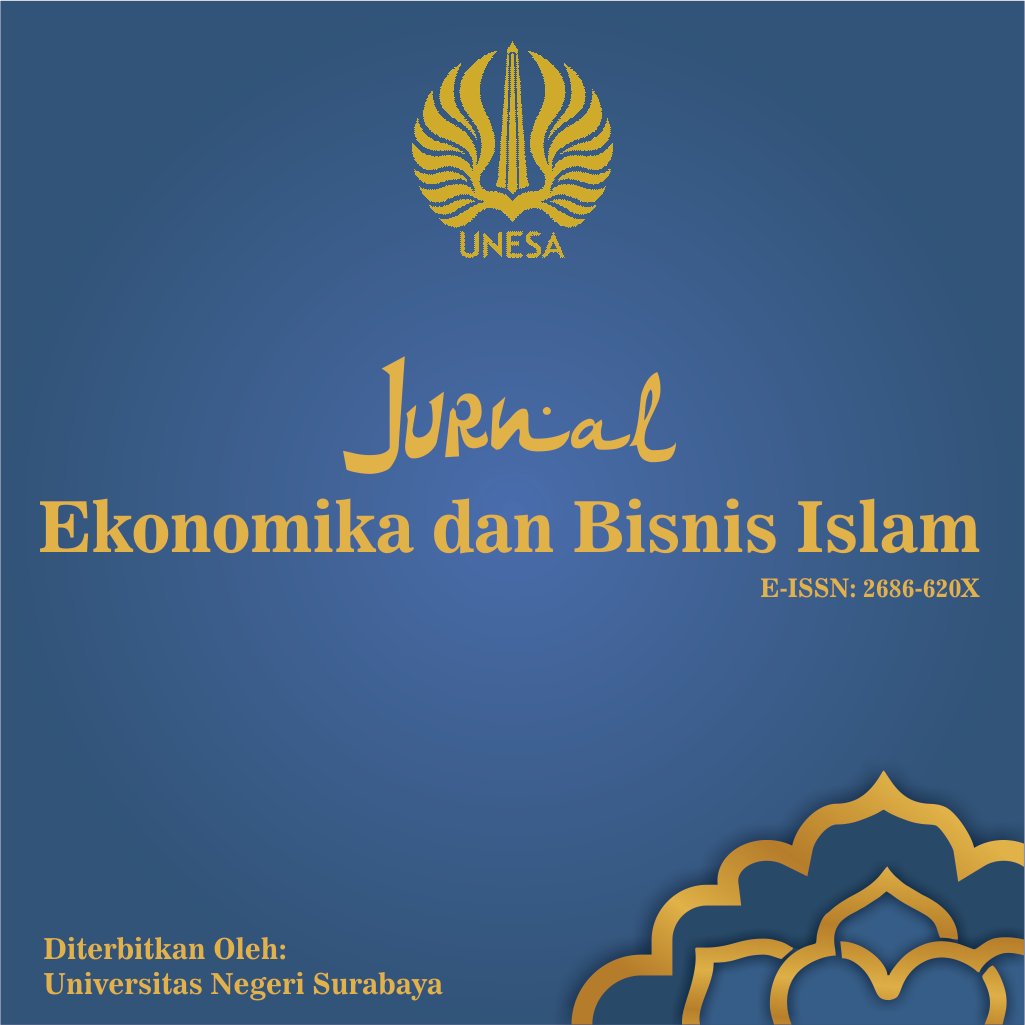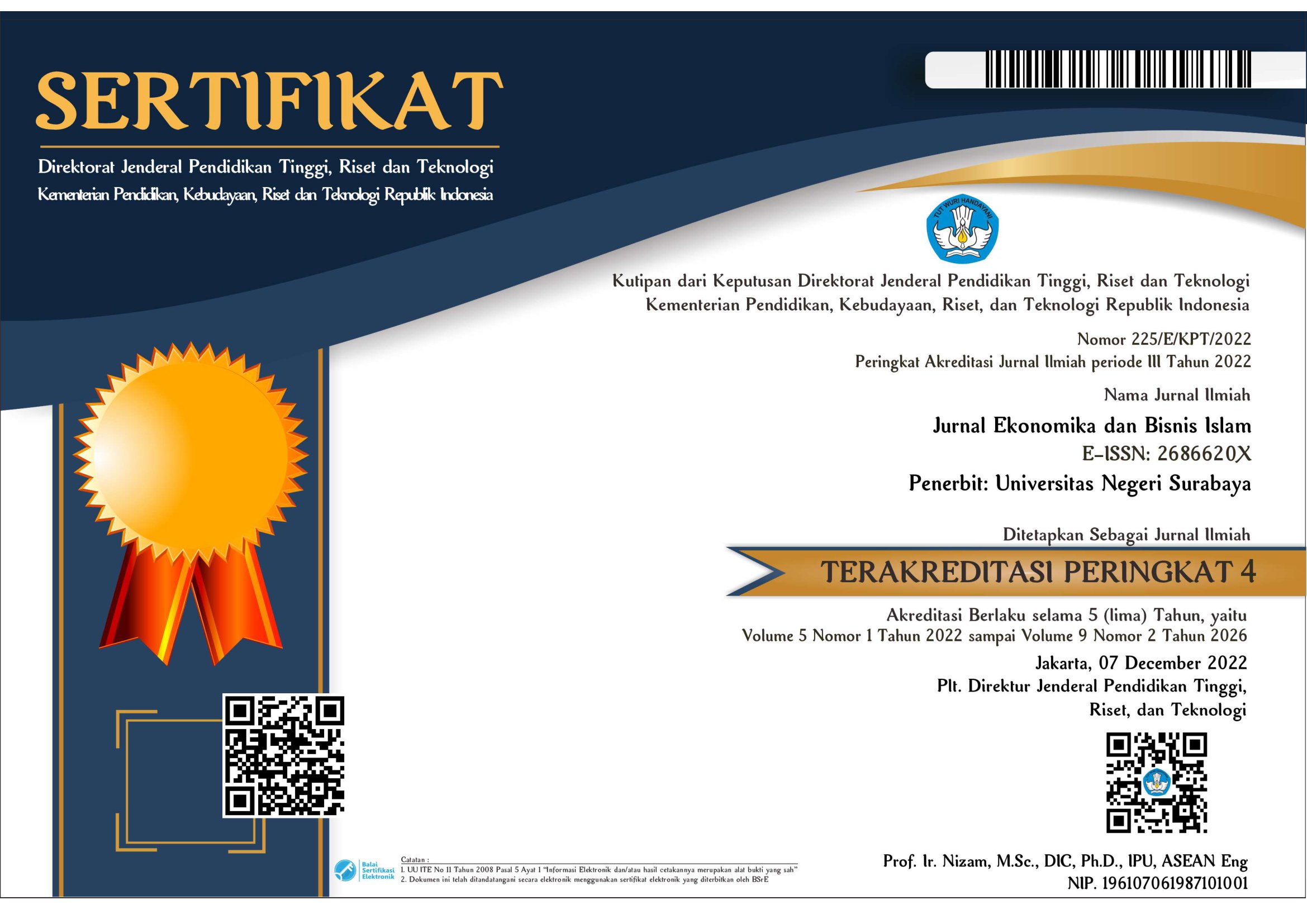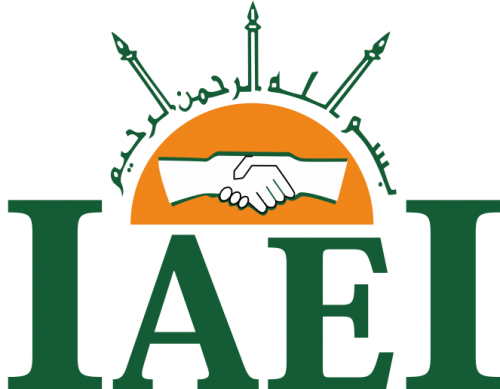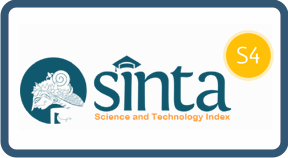Zakat Produktif Sebagai Instrument Membangkitkan Kesejahteraan Perekonomian Di Masa Pandemic Covid19
DOI:
https://doi.org/10.26740/jekobi.v6n1.p70-83Keywords:
Productive Zakat, Welfare, Covid-19.Abstract
Zakat is an obligation of a Muslim who must be excluded from the net value of the wealth he earns, which has reached one nisab and achieved haul. The method used in this study is Library (library research). The purpose of this study is to examine productive zakat as an instrument to revive economic welfare during the Covid-19 pandemic. From this research, zakat is an obligation of Muslims that must be excluded from the net value of the wealth earned by him, which has reached one nisab and achieved haul. From the statistical results of the national BAZNAS, the collection and distribution of zakat from year to the year 2015-2022 slalu has increased significantly. The growth of the zakat collection began to be seen in 2015. This growth has to do with the efforts of the government and other zakat stakeholders including BAZNAS. In making improvements and innovations from various sides, both from governance and OPZ. The birth of the covid-19 economy has experienced a tremendous decline, zakat as an Islamic financial instrument is present as a solution and an effort to improve the welfare of the community through programs, health, socio-economic, proselytizing, education, and the economy. The efforts of the national BAZNAS in awakening the welfare of the community during the Covid-19 pandemic have distributed productive zakat funds to mustahiq to build a business that can meet their needs.
References
Abidah, Atik. 2011. Zakat Filantropi dalam Islam Refleksi Nilai Spritual dan Charity. Ponorogo: STAIN Ponorogo Press.
Armiadi, 2012117101. 2020. Pendayagunaan Zakat Produktif; Konsep, Peluang dan Pola Pengembangan. Banda Aceh: Lembaga Naskah Aceh. https://repository.ar-raniry.ac.id/id/eprint/17249/.
Asnaini. 2008. Zakat produktif dalam perspektif hukum Islam. Cet.1. Pustaka Pelajar.
Badan Pusat Statistik. 2020a. Berita Resmi Statisitik 15 Juli 2020. Jakarta: Badan Pusat Statistik.
Basri, Ikhwan Abidin. 2005. Islam dan Pembangunan Ekonomi. Jakarta: Gema Insani Press.
BAZNAS. 2020a. Laporan Baznas dalam Penanganan Pandemic Covid-19. Jakarta: PUSKAS BAZNAS.
Djatmiko, Purwo. 2014. Kamus Bahasa Indonesia Lengkap | Perpustakaan Universitas Wahidiyah. Surabaya: Anugerah. //sia-uniwa.ddns.net%2Fpustaka%2Findex.php%3Fp%3Dshow_detail%26id%3D4240.
Fahrudin, Adi. 2012. Pengantar Kesejahteraan Sosial. Bandung: PT. Refika Aditama.
Fikih Zakat Kontekstual Indonesia | PUSTAKA BAZNAS. 2018. Jakarta: Badan Amil Zakat Nasional. //pustaka.baznas.go.id/index.php?p=show_detail&id=27.
Hafidhuddin, Didin. 2002. Zakat dalam perekonomian modern. Gema Insani.
Hamang, Nasri. 2015. Ekonomi Zakat. Disunting oleh Andi Bahri. Parepare: LbH Press STAIN Parepare. http://repository.iainpare.ac.id/275/.
Huda, Nurul. 2012. Keuangan Publik Islam: Pendekatan Teoritis Dan Sejarah. Jakarta: Prenadamedia Grup.
Qardhawi, Yusuf. 2003. Spectrum Zakat. Jakarta: Zikrul Hakim.
RI, Kementrian agama. 2013. Panduan zakat praktis. kementrian agama ri.
Siyoto, Sandu, dan Ali Sodik. 2015. Dasar Metodologi Penelitian. Yogyakarta: Litersi Media.
Soemitra, Andri. 2009. Bank dan Lembaga Keuangan Syariah. Jakarta: Kencana.
Downloads
Published
How to Cite
Issue
Section
License
Copyright (c) 2023 Nur Isnaini

This work is licensed under a Creative Commons Attribution 4.0 International License.
This work is licensed under a Creative Commons Attribution 4.0 International License.
 Abstract views: 423
,
Abstract views: 423
, PDF Downloads: 762
PDF Downloads: 762














